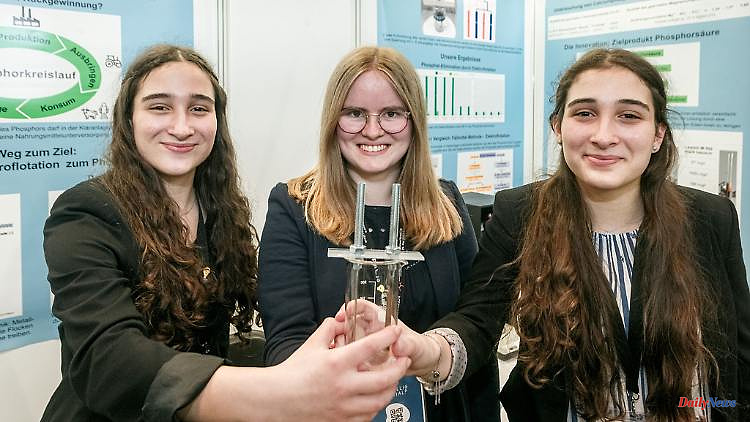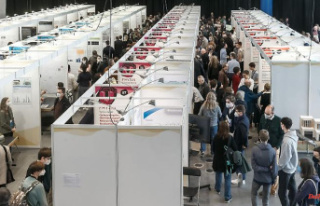Lübeck (dpa/lby) - At the "Jugend forscht" national competition on Sunday, three students from Bavaria were honored as the best young scientists in two subjects. 15-year-old Vincent Nack from Höhenkirchen near Munich developed an emergency braking assistance system for bicycles and became national winner in the field of working life. The 16-year-old twin sisters Hanna and Lena Fries and 17-year-old Hannah Amrhein from the Julius-Echter-Gymnasium Elsenfeld (Miltenberg district) won the chemistry prize. They found a new approach to recycle phosphorus from wastewater.
More than 8000 children and young people took part in the 57th national competition "Jugend forscht", 168 made it to the final. At the award ceremony in Lübeck, the three chemistry prizewinners were also presented with the Europe Prize of the German Research Foundation. In September they can take part in the EU competition for young researchers in Leiden, the Netherlands.
The three girls discovered that phosphates can be bound in water with tiny flakes and transported to the surface in an electric field. With this electroflotation, they recover over 80 percent of the valuable plant nutrient phosphorus. With conventional methods, sewage treatment plants recover only 40 to 60 percent.
15-year-old Vincent Nack developed an emergency braking assistance system for bicycles that prevents head-on collisions and accidents when turning. With ultrasonic sensors and a gyroscopic stabilizer on the handlebars, it intervenes independently in a dangerous situation and triggers controlled emergency braking on the rear wheel via a cable pull.
The winners received 2500 euros. Hanna Fries said the experiments together were fun. "We've known each other since kindergarten." Now they hope that a sewage treatment plant will try their method. Vincent Nack said he does not yet have a partner to implement his assistance system. "It has to get smaller."












